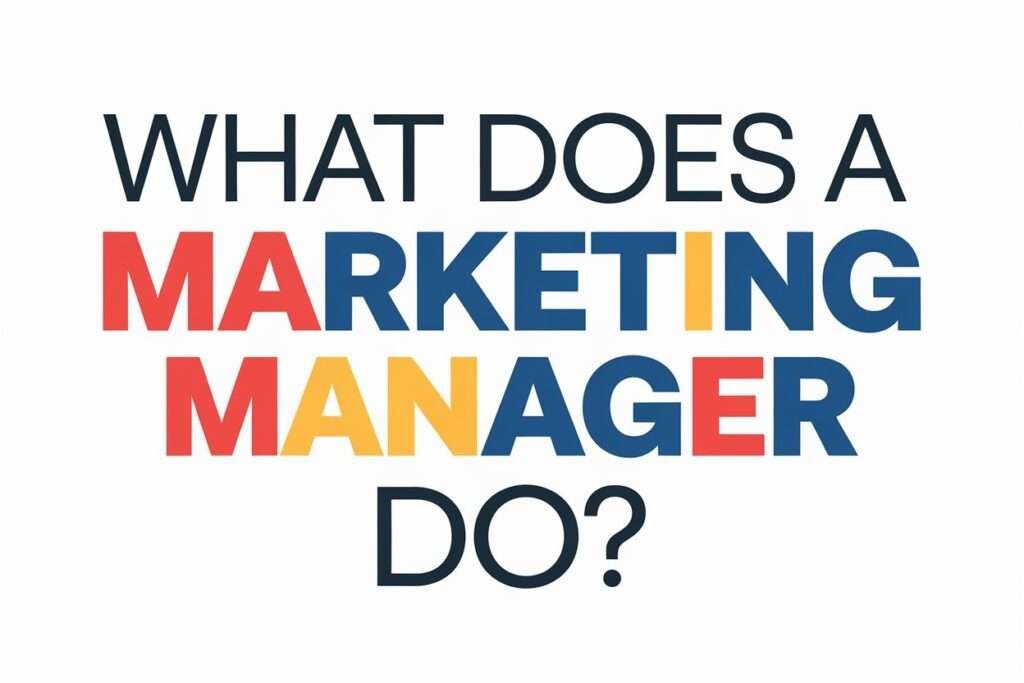In today’s fast-paced digital world, the role of a Marketing Manager is more important than ever. Businesses need someone to guide their marketing efforts, ensuring they reach the right audience and achieve their goals. This blog will explore what a Marketing Manager does, why they are essential, and how they can help a business succeed.
Follow me on Linkedin for more.

The Role of a Marketing Manager
What Does a Marketing Manager Do?
A Marketing Manager is responsible for developing and executing marketing strategies. They analyze market trends, study customer behavior, and work with teams to create campaigns that resonate with the target audience. Here are some key tasks a Marketing Manager handles:

- Market Research: Understanding the market is crucial. A Marketing Manager conducts research to identify trends, customer preferences, and competitors. This information helps them create effective marketing strategies.
- Campaign Planning: They develop marketing campaigns that align with the company’s goals. This involves deciding on the right channels, such as social media, email, or content marketing, to reach potential customers.
- Team Leadership: A Marketing Manager leads a team of marketers, ensuring everyone is working towards the same objectives. They provide guidance, set goals, and monitor performance.
- Budget Management: Marketing activities require a budget. The Marketing Manager allocates resources wisely, ensuring each campaign delivers the best return on investment (ROI).
- Performance Analysis: After a campaign is launched, the Marketing Manager analyzes the results. They use data to measure success, identify areas for improvement, and optimize future campaigns.
10 Rules to Master Social Media Marketing in 2024
Why Is a Marketing Manager Important?

Customer Engagement: Engaging customers is key to building loyalty. A Marketing Manager uses various tactics to connect with customers, such as personalized content, social media interactions, and loyalty programs.
Driving Growth: A Marketing Manager helps businesses grow by reaching more customers and increasing sales. Their strategies are designed to attract and retain customers, boosting the company’s bottom line.
Brand Building: Building a strong brand is essential for long-term success. A Marketing Manager ensures that all marketing efforts align with the brand’s image and values, creating a consistent and memorable identity.
Adapting to Changes: The marketing landscape is constantly changing, with new technologies and trends emerging regularly. A skilled Marketing Manager stays updated and adapts strategies to keep the business competitive.
Skills and Qualifications of a Marketing Manager
To be successful, a Marketing Manager needs a combination of skills and experience. Here are some essential qualifications:
Creativity: Marketing is both an art and a science. A Marketing Manager should be able to think creatively and come up with innovative ideas that capture the audience’s attention.
Marketing Expertise: A deep understanding of marketing principles, digital marketing tools, and analytics is essential.
Communication Skills: Marketing Managers must communicate effectively with their team, clients, and customers. Strong writing and speaking skills are a must.
Leadership Abilities: Leading a team requires strong leadership skills. A Marketing Manager should be able to motivate, guide, and support their team.
Analytical Thinking: The ability to analyze data and make informed decisions is crucial. A Marketing Manager should be comfortable working with metrics and analytics tools.
Conclusion
In conclusion, a Marketing Manager plays a vital role in any business. They drive growth, build brands, and ensure that marketing efforts are effective and efficient. In today’s digital age, having a skilled Marketing Manager is essential for any business that wants to succeed. If you’re looking to enhance your company’s marketing efforts, investing in a talented Marketing Manager could be the key to your success.
Call to Action
Are you ready to take your marketing to the next level? Consider hiring a Marketing Manager to lead your campaigns and drive your business forward. With the right strategies in place, your company can achieve its marketing goals and reach new heights of success.
